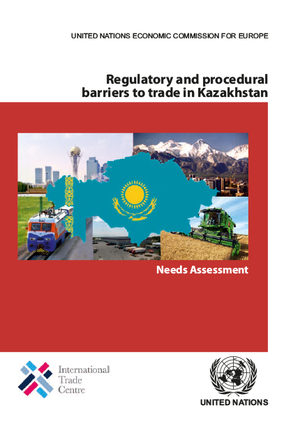Regulatory and procedural barriers to trade in Kazakhstan (en)
Kazakhstan's trade performance can grow by focusing on its domestic capacity to trade, according to a survey of companies and state agencies undertaken by ITC and the UN Economic Commission for Europe. Those surveyed seek stronger trade regulations and procedures, better transport and logistical...




